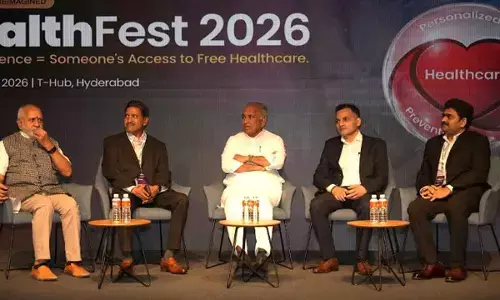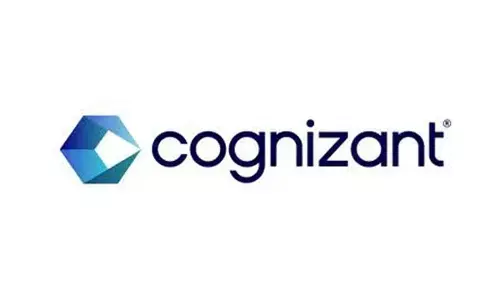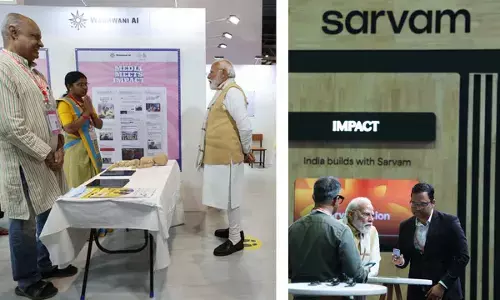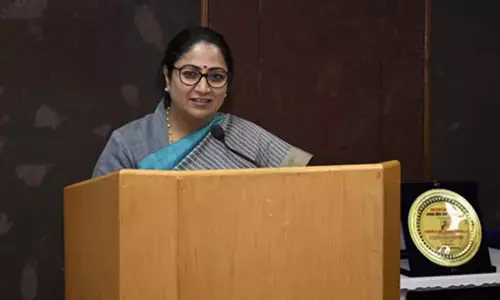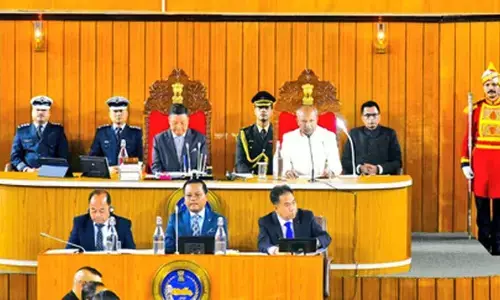Tax biggies to stop borrowing
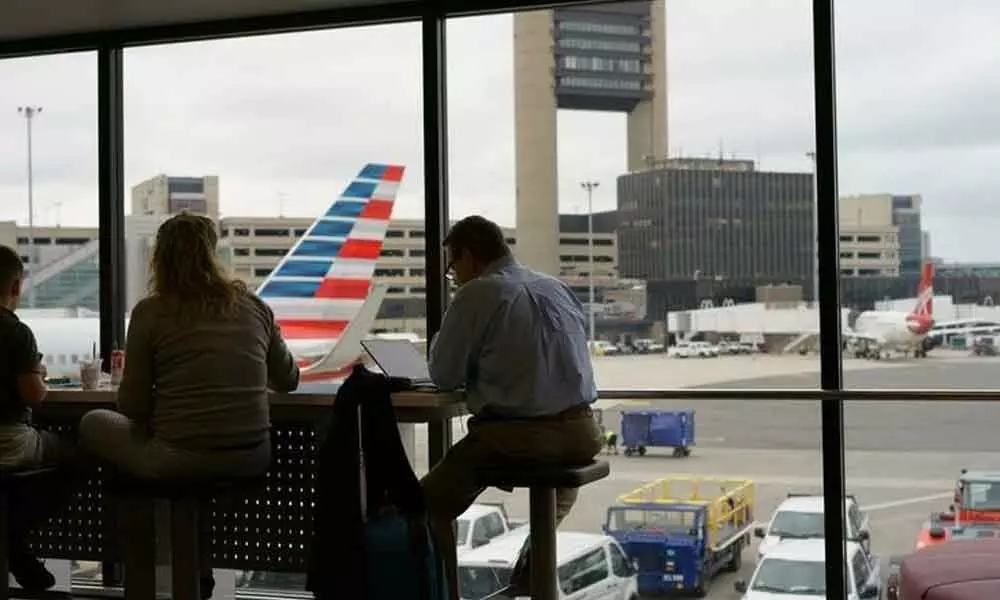
Tax biggies to stop borrowing
The Finance Minister should increase the budget allocations for science and communications and for providing direct cash transfers to all the citizens
The Finance Minister should increase the budget allocations for science and communications and for providing direct cash transfers to all the citizens. The former will lay foundations of our economic prowess in the next century. The latter will engage our manpower in productive employment, put purchasing power in the hands of people, generate demand in the market and set in motion a fortuitous cycle of employment generation, production, creation of demand and yet more employment generation.
Increasing expenditures on capital intensive infrastructural works like making highways will not start the economy because these do not employ large numbers of workers and do not harness the productive power of our youth. These activities are like a beautiful island in midst of a sea in turmoil.
The present year 2020-21 is abnormal hence I will give my suggestions for the coming budget on the basis of the figures for 2019-20. I have given all figures in approximate to keep the presentation simple. On the revenue side, my first suggestion is that the rates of Corporate Tax must be increased. The share of the Central government in the collections from Corporate Tax was Rs 3.2 lakh crore in 2019-20. This may be increased to Rs 4.0 lakh crore.
Indeed, there will be a tendency of Indian corporates to shift their head office to foreign countries in order to avoid paying the high taxes here. This should be dealt by amending the Double Tax Avoidance Agreements that we have entered into in the last two decades.
Two, Income Tax rates must be increased. The share of the Central government in the collections from Income Tax was Rs 2.8 lakh crore in 2019-20. This must be increased to Rs 4.0 lakh crore in 2021-22. Indeed, this will lead to a reduction in the demand from the better-off sections who are income taxpayers, but much greater demand will be created from the common man by the dropping of helicopter money as I propose below.
Three, GST rates must be reduced. The share of the Central government in the collections from GST was Rs 6.1 lakh crore in 2019-20. This must be reduced to Rs 4 lakh crore in 2021-22. This will lead to lower prices of goods in the market and rev up the demand.
Four, customs duties must be increased three times. The share of the Central government in the collections from customs duties was Rs 0.6 lakh crore in 2019-20. This must be increased to Rs 2 lakh crore in 2021-22. This will provide a big boost to domestic production by providing them protection from cheap imports. Five, Central Excise Duties must be increased by about 67 percent. These are collected mainly on petroleum products.
The Central government collected Rs 2.5 lakh crore in 2019-20 from these duties. This must be increased to Rs 4 lakh crore in 2021-22. This increase will lead to higher price of petrol, reduced demand and lesser dependence on imports. That, in turn will lead to less pressure on us to export. Once again, the loss to the common man from higher price of petroleum products will be many times compensated by the helicopter money.
Six, the fiscal deficit may be reduced from the 7 percent-plus expected in the present year 2020-21 and restricted to 3.8 percent of GDP as it was in 2019-20. That will provide an amount of Rs 7.6 lakh crore from borrowings. The total budget of the Central government was Rs 27 lakh crore in 2019-20. This will increase to Rs 30 lakh crore due to the increased receipts from taxes suggested above after compensating for the reduced receipts from GST.
On the expenditure side, the first suggestion is that the allocations for defence must be increased. The Central government spent Rs 4.4 lakh crore on defence in 2019-20. This must be increased to Rs 7 lakh crore in 2021-22 in view of the threats we are facing from China. Two, allocations for technology and communications must be increased manifold. The Central government spent Rs 0.3 lakh crore each on these heads in 2019-20.
This must be increased five times to Rs 1.5 lakh crore for both the heads in 2021-22. These sectors will lay the foundations of our future technological progress and this must be done pronto. Three, allocation for Home Ministry at Rs 1.4 lakh crore must be maintained since law and order is a fundamental requirement of a stable economy. Four, allocation for Health Ministry at Rs 0.6 lakh crore must be maintained. However, there is a need to change to composition of expenditures within the Ministry.
The expenditures on Central government health services and similar schemes that provide health care to individuals must be scrapped entirely and the beneficiaries must be asked to pay in full for the services. The money saved may be diverted for research in control of Covid-19 pandemic. Five, expenditures on infrastructure must be temporarily reduced and expenditures on welfare schemes like Public Distribution System, MNREGA and education that provide welfare services to the people directly must be entirely scrapped.
The Central government spent Rs 20 lakh crore on these Ministries in 2019-20. This must be reduced to Rs 10 lakh crore in 2021-22. The abovementioned expenditures will require Rs 22 lakh crore leaving a balance of Rs 8 lakh crore out of the total revenue of Rs 30 lakh crore. This money should be transferred as "helicopter money" in the bank accounts of the 140 crores of our citizens providing Rs 500 per person per month to all the people.
This transfer will more than nullify the loss from the dismantling of the welfare schemes in increased burden from increase in petroleum prices. This transfer will immediately generate a huge demand for goods in the market. Coupled with the increase in import duties this will lead to higher domestic production and set in motion a fortuitous cycle of demand generation, production, employment generation and more demand generation. The expenditures on infrastructure such as in the highways can be restored after one or two years once the economy is back in motion.
We are in a crisis period. The Finance Minister should not increase expenditures on capital-intensive infrastructure schemes by borrowing ever larger amounts. That will impose a higher interest burden and throttle the economy. When domestic demand can be generated by increase in taxes and dropping of helicopter money; why try to do the same by borrowing and pushing us into a debt trap?
(The writer is formerly Professor of Economics at IIM, Bengaluru)


